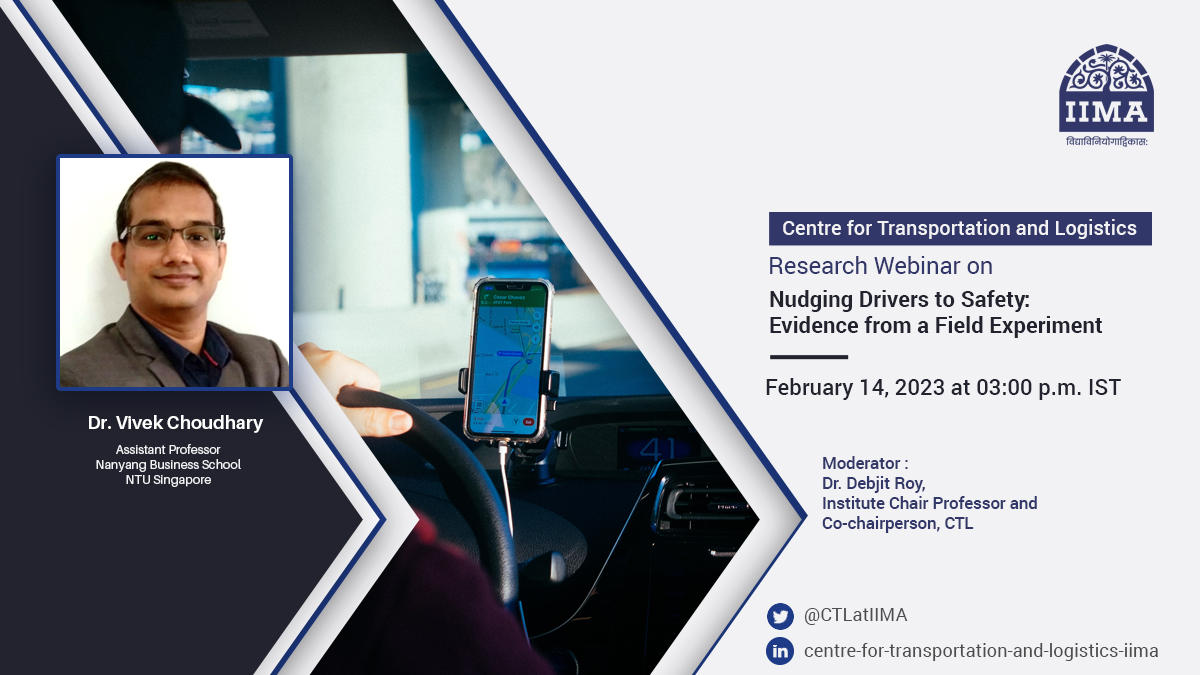
14/02/2023

Abstract:
Driving is an integral component of many operational systems, and any small improvement in driving quality can have a significant effect on accidents, traffic, pollution, and the economy in general. However, making improvements is challenging given the complexity and multidimensionality of driving as a task.
In this paper, we investigate the effectiveness of nudging to improve driving performance. In particular, we leverage a smartphone application launched by our industry partners to send three types of nudges through notifications to drivers, indicating how they performed on the current trip with respect to their personal best, personal average, and latest driving performance. We measure the resulting driving performance using telematics technology (i.e., real-time sensor data from an accelerometer, GPS, and gyroscope in a mobile device).
Compared to the “no-nudge” control group, we find that personal best and personal average nudges improve driving performance by approximately 18% standard deviations of the performance scores calculated by the application. In addition, these nudges improve inter-accident times (by nearly 1.8 years) and driving performance consistency, as measured by the standard deviation of the performance score. Noting that driving abilities and feedback-seeking may vary across individuals, we adopt a generalized random forest approach which shows that high-performing drivers who are not frequent feedback seekers benefit the most from personal best nudges, while low-performing drivers who are also frequent feedback seekers benefit the most from the personal average nudges. Finally, we investigate the potential mechanism behind the results by conducting an online experiment in a non-driving context. The experiment shows that the performance improvements are directly driven by the changes in participants’ effort in response to different nudges, and that our key findings are robust in alternative (non-driving) settings. Our analysis further shows that nudges are effective when the variability in reference points is low, which explains why the personal best and personal average nudges are effective, while the last score nudge is not.
About the Speaker:
Dr. Vivek Choudhary is an Assistant Professor at the Nanyang Business School, NTU Singapore. He is interested in Empirical Operations Management problems with two research streams: 1) Behavioral Operations and 2) Supply Chain Management. His recent works examine the implications of technology on behavior and devise interventions to improve conduct and performance. He employs econometrics, field experiments, and machine learning in his research. He completed his Ph.D. from INSEAD. Before his doctoral studies, he worked for McKinsey & Co as a management consultant and ITC Limited as an operations manager. He holds B.Tech. and M.Tech. degrees from IIT Kharagpur, India in Mechanical Engineering. He also advises several start-ups such as Raxel Telematics.
